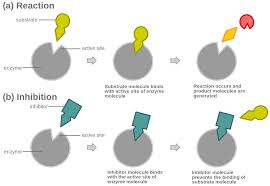inhibition
英 [ˌɪn.hɪˈbɪʃ.ən]
美 [ˌɪn.hɪˈbɪʃ.ən]
- n. 抑制;压抑;禁止
使用频率:

记忆方法
记忆“inhibition”可以通过联想其结构来记忆。将“inhibit”(抑制)分解为“in”+“hibit”。其中,“in”意味着“在里面”,而“hibit”可以联想为“hibit”像“hit”(打击)的动作,但方向相反,是向内的打击,即抑制或限制。通过这样的内部打击(抑制)的概念,可以帮助记忆“inhibition”这个单词的含义。
以上内容由AI生成, 仅供参考和借鉴
中文词源
inhibition 抑制,拘谨
来自inhibit,抑制,使拘束。
英语词源
- inhibition (n.)
- late 14c., "formal prohibition; interdiction of legal proceedings by authority;" also, the document setting forth such a prohibition, from Old French inibicion and directly from Latin inhibitionem (nominative inhibitio) "a restraining," from past participle stem of inhibere "to hold in, hold back, keep back," from in- "in, on" (see in- (2)) + habere "to hold" (see habit (n.)). Psychological sense of "involuntary check on an expression of an impulse" is from 1876.
权威例句
- 1. They behave with a total lack of inhibition.
- 他们表现得毫无顾忌。
- 2. Some drugs can cause the inhibition of normal bodily activity.
- 有些药剂会对正常的身体功能产生抑制作用.
- 3. Inhibition in adulthood seems to be very clearly a reflection of a person's experiences as a child.
- 一个人成年期的情感压抑似乎很明显是其童年时期经历的反映。
- 4. This biochemical inhibition of feeding by animals or plants is called " allelopathy ".
- 这一生物化学上抑制动物或植物的取食被称谓 “ 他感作用 ”.
- 5. On most matters she's quite prepared to sound off without inhibition.
- 对大多数问题她都准备毫无保留地阐述自己的意见.
